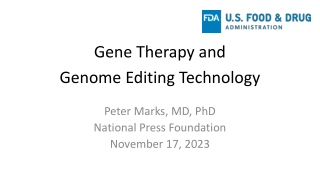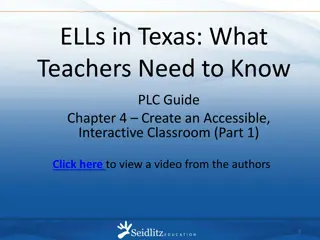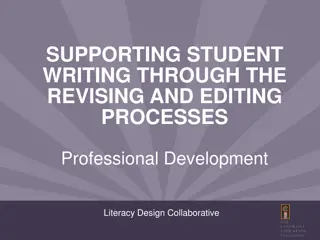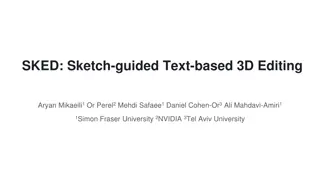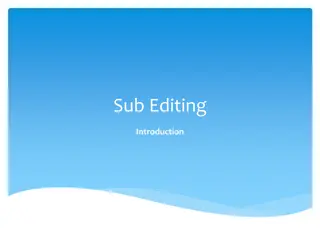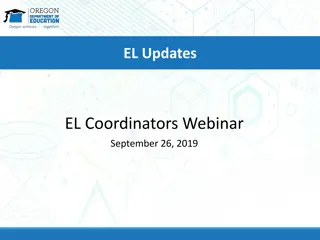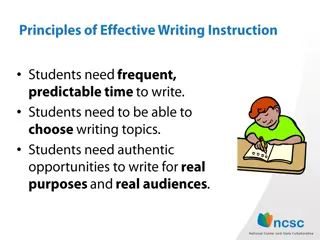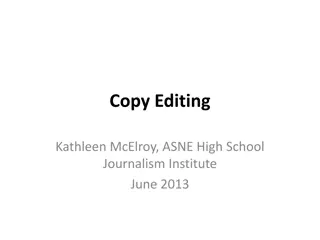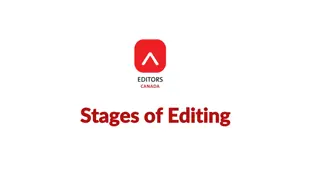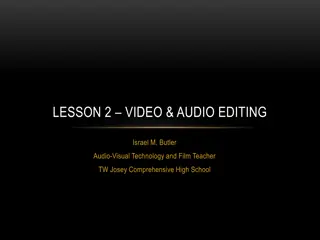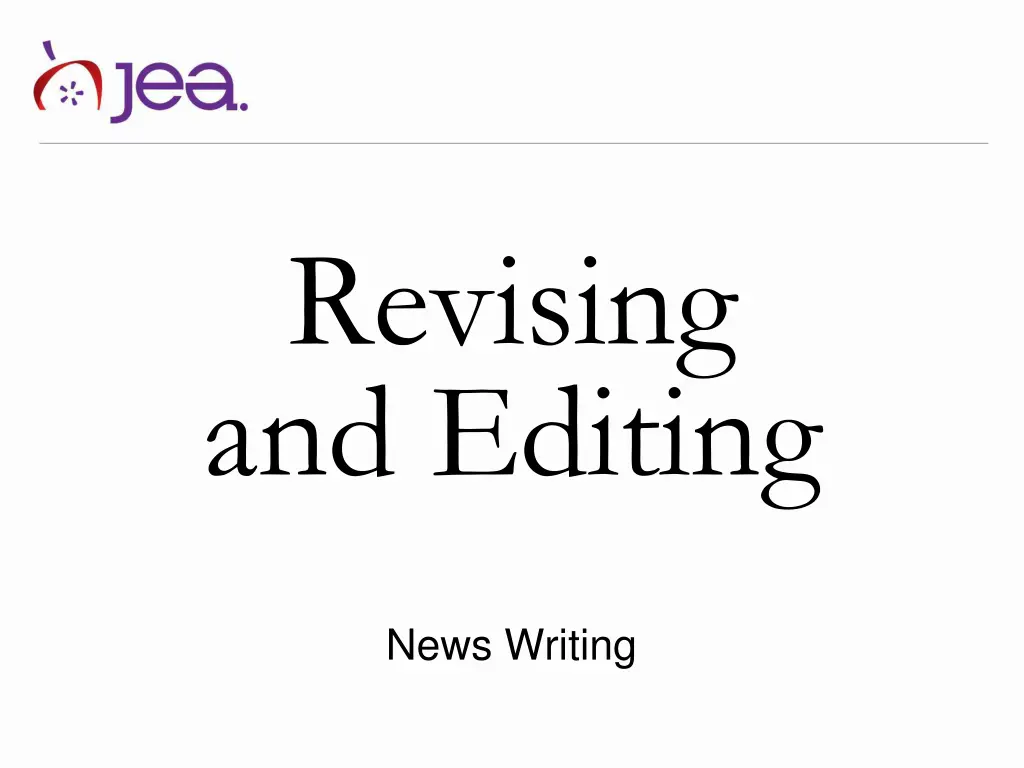
Improve Your News Writing with Effective Rewriting Tips
Learn how to enhance your news writing skills by following the fundamental formula of L-Q-T-Q (Lead, Quote, Transition, Quote). Discover the importance of short paragraphs, rewriting, and editing to perfect your stories. Get insights from professional writers on the significance of rewriting and how it contributes to crafting compelling news stories.
Download Presentation

Please find below an Image/Link to download the presentation.
The content on the website is provided AS IS for your information and personal use only. It may not be sold, licensed, or shared on other websites without obtaining consent from the author. If you encounter any issues during the download, it is possible that the publisher has removed the file from their server.
You are allowed to download the files provided on this website for personal or commercial use, subject to the condition that they are used lawfully. All files are the property of their respective owners.
The content on the website is provided AS IS for your information and personal use only. It may not be sold, licensed, or shared on other websites without obtaining consent from the author.
E N D
Presentation Transcript
Revising and Editing News Writing
L-Q-T-Q Remember the basic formula. Use the LQTQ handout. Write a lead that quickly and clearly indicates the focus of the story. The next paragraph supplies the details and remaining 5W s. Next, use a quote summarizes the story or provides an additional detail, opinion or emotion. Write a transition to the next quote or thought. Use another quote. And so on *
Remember, short paragraphs You need one new paragraph for each new idea. Every new quote is one new paragraph. No big long blocks of text.
When youve written your story... High-five yourself. Good story. Now make it better. Most stories, even yours, require rethinking, rewriting, restructuring, rewording. Stop thinking that it is perfect just the way it is. You can do better. Everyone rewrites. *
All Writing is Rewriting How to revise and edit news stories
Im always surprised that people think professional writers get everything right on the first try. Just the opposite is true; nobody rewrites more often than the true professional. William Zinsser, author of On Writing Well It s perfectly OK to write garbage as long as you edit brilliantly. C.J. Cherryh, science fiction writer *
A reporter who doesnt rewrite has tight deadlines, bad habits or both. (In fact, I rewrote the above sentence twice.) Ron French, The Detroit News I don t write. I rewrite. My stories come about more like rocking a car back and forth in a ditch Eventually it gets out and I m on my way. Tim Nelson, Pioneer Press, St. Paul, Minn. *
The rewriting process is not: making your handwriting neater using the thesaurus to find bigger words. typing exactly what you wrote by hand. only running spell check and grammar check adding extra words
Making it better, Step 1: Run spell-check. Correct typos, spelling errors and obvious grammar errors. Check name spellings, dates and facts. Run a word count. If you have 500 words for a 350-word article, that s good. If you have 200 words, stop right there. You need to do more interviewing. THINK: What am I missing?
Making it better, Step 2: Read your story out loud. Check for a subject and verb in every sentence. Listen for run on sentences (places where there should be a stop but isn t) and mark if a period or comma should be added. Mark anything that sounds strange, bad, or incorrect.
Making it better, Step 3: quotes Reread all your quotes. Check your notes for other quotes that might work better or fit better. Don t have good quotes? Go back and conduct more interviews. Double-check names, grades, titles, and spellings.
Making it better, Step 4: balance Reread all your quotes. Do you have quotes: From different groups of people (teachers, students, grades, etc)? Showing multiple sides of a story? Are all important points made by the people who are in disagreement present? Eliminate any personal pronouns not in quotes (we, our, us, my, me, I). Make sure you are not expressing an opinion.
Making it better, Step 5: verbs Circle all the ly words (adverbs). Can you take out the adverb without changing the meaning of the sentence? Yes? Then do it. Can you improve the sentence with a stronger verb? Yes? Use the verb and take out the adverb.
More on verbs Circle all the ing words and all the instances of is , was or has. Can you change the verb to an active verb ( walked instead of was walking )? Is the sentence written in active voice? (Who did what to whom) Can you improve the sentence with a stronger verb? Use it.
Making it better, Step 6: lead Reread your lead. Count the words. If it s over 30, that s way too many. Make it shorter. Are all of the 5W s and H covered in the first two or three paragraphs? If not, add what s missing. Does the lead immediately interest the reader and tell what the story is about? If not, write one that does.
Making it better, Step 7: ending Reread your ending. Is it a quote that summarizes or adds a twist to the story? Yes? Then go on to the final step. Is it an essay-like conclusion that you wrote yourself? Yes? Then REWRITE. Try to find a kicker quote. Don t ruin a great news story by editorializing at the end.
Making it better, Step 8: finally! Run a final spell-check again Correct any errors. Check your word count again. If your word count is close to the word count you were given, your story is ready for a peer edit. If it s still too long, go through it again, looking for any place you repeat yourself or where you can say something in fewer words. If it s still too short, go back to Step 3.
Checklist for news stories Are the most important and recent facts first? Is the story accurate? Are all sources identified? Are the paragraphs short? Is the sentence structure varied in the story? Is the story formatted so it is easy to read? Does your story flow? Did you use the transition/quote (L-Q-T-Q) formula? Did you use active voice?
First draft rubric Interview sources and quotes(at least three sources) ________ / 20 possible Organization/sentence fluency (clarity and wordiness) _______ / 20 Focus (on topic from beginning to end) ____ / 20 Compelling lead and conclusion _______ / 20 Conventions (names spelled correctly; correct capitalization and punctuation; correct grammar and spelling. More than five errors = 0) ______ / 20 Total______________100 possible *

